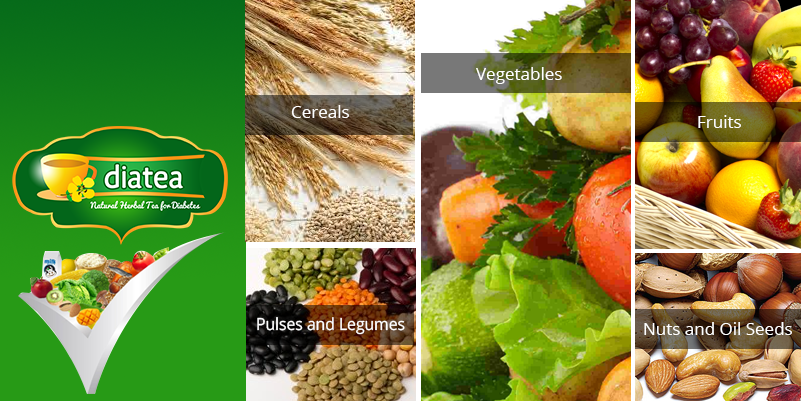 - Diabetes diet, Simplify Everything
- Diabetes diet, Simplify Everything
If you are the one who thinks, “why me? At 50, I was 10st 7lb, and had never been overweight. I exercise regularly and never had alcohol or any other soft drinks. Yet, during a regular checkup, I was informed that I’m having diabetes,” then you must take care of your diet.
Maintaining a balanced diabetes diet can help you control the effects of diabetes giving you an active life. Even though, many dieticians have suggested you the right way of having foods, here is a short insight to the make the right choice of food.
Cereals
In this food group, you must take fiber-rich cereals like whole wheat flour, black millet (bajra), red millet (ragi), white millet (jowar), wheat bran (konda), oats, barley etc… The foods which you must avoid are simple carbohydrates like refined flour and its products like pasta, biscuit, bread and so forth.
Having fiber rich foods will increase the blood glucose levels as they take longer to digest. If you wish to eat rice or bread, try to pair it with lots of fiber-rich veggies.
Foods that can be consumed in pulses are red gram (tur dal), Bengal gram (chana dal), kidney beans (chick peas), whole green gram (moong), soya bean and its products etc… Avoid canned beans as much as you can.
Pulses are rich source of protein which is required in moderate quantities. Have only one source of protein in each meal or have small portions of any 2 sources. For example, do not combine pulses, cottage cheese (paneer), curds and milk in one meal.
Vegetables
Have fiber rich vegetables like cabbage, cluster beans, French beans, onions, bitter gourd and leafy vegetables like fenugreek, spinach etc… But try to avoid carbohydrate rich vegetables like potato, beetroot and sweet potatoes.
Vegetables are rich in fiber, vitamins and minerals that help to bind glucose and slow down its absorption thereby preventing a sudden rise in blood glucose levels.
Fruits
Fruits such as apples, watermelon, papaya, muskmelon, pineapple, orange, guava etc… are rich in fiber and good for diabetic diet. It is advised to avoid carbohydrate rich fruits including mango, banana, custard apple, grapes, preserved or canned fruits and juices.
And also, it is advisable to eat one or two whole fruits in a day. Try to avoid juices as much as possible as straining and other heat processes lead to loss of valuable nutrients.
Nuts and Oil Seeds
Walnuts, almonds and dates are good for a diabetic patient at the same time cashewnuts, pistachio nuts, coconut and poppy seeds may cause serious issues.
Walnuts and almonds contain Mono Unsaturated Fatty Acids that protect your heart. It is advisable to have these nuts 2-3 times a week provided you balance your energy intake on the day you have them.
All the above mentioned foods can be occasionally consumed but in restricted amounts and in combination with other fiber rich foods preferably. Consult your doctor for more details.